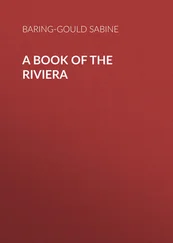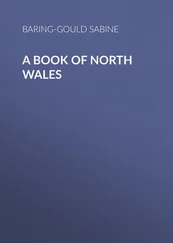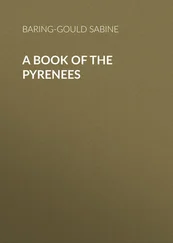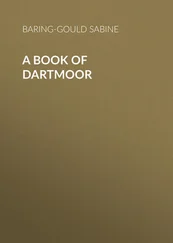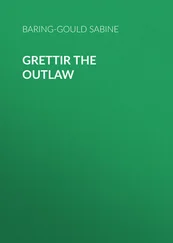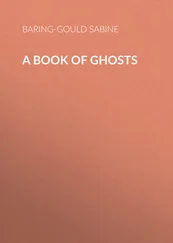Sabine Baring-Gould - A Book of the West. Volume I Devon
Здесь есть возможность читать онлайн «Sabine Baring-Gould - A Book of the West. Volume I Devon» — ознакомительный отрывок электронной книги совершенно бесплатно, а после прочтения отрывка купить полную версию. В некоторых случаях можно слушать аудио, скачать через торрент в формате fb2 и присутствует краткое содержание. Жанр: foreign_antique, foreign_prose, на английском языке. Описание произведения, (предисловие) а так же отзывы посетителей доступны на портале библиотеки ЛибКат.
- Название:A Book of the West. Volume I Devon
- Автор:
- Жанр:
- Год:неизвестен
- ISBN:нет данных
- Рейтинг книги:4 / 5. Голосов: 1
-
Избранное:Добавить в избранное
- Отзывы:
-
Ваша оценка:
- 80
- 1
- 2
- 3
- 4
- 5
A Book of the West. Volume I Devon: краткое содержание, описание и аннотация
Предлагаем к чтению аннотацию, описание, краткое содержание или предисловие (зависит от того, что написал сам автор книги «A Book of the West. Volume I Devon»). Если вы не нашли необходимую информацию о книге — напишите в комментариях, мы постараемся отыскать её.
A Book of the West. Volume I Devon — читать онлайн ознакомительный отрывок
Ниже представлен текст книги, разбитый по страницам. Система сохранения места последней прочитанной страницы, позволяет с удобством читать онлайн бесплатно книгу «A Book of the West. Volume I Devon», без необходимости каждый раз заново искать на чём Вы остановились. Поставьте закладку, и сможете в любой момент перейти на страницу, на которой закончили чтение.
Интервал:
Закладка:
In folk-song, then, we may expect to see reflected the characteristics of the race from which it has sprung, and, as in the counties of Devon and Cornwall on one side and Somersetshire on the other, we are brought into contact with two, at least, races – the British and the Saxon – we do find two types of melody very distinct. Of course, as with their dialects, so with their melodies, the distinctions are sometimes marked, and sometimes merged in each other. The Devonshire melodies have some affinity with those of Ireland, whilst the Somersetshire tunes exhibit a stubborn individuality – a roughness, indeed, which is all their own.
Taking first the Devonshire songs, I think one cannot fail to be struck with the exceeding grace and innate refinement which distinguish them. These qualities are not always perceptible in the performance of the songs by the untutored singers; nor do the words convey, as a rule, any such impressions, but evident enough when you come to adjust to their proper form the music which you have succeeded in jotting down. It surprises you. You are not prepared for anything like original melody, or for anything gentle or tender. But the Devonshire songs are so. Their thought is idyllic. Through shady groves melodious with song, the somewhat indolent lover of Nature wanders forth without any apparent object save that of "breathing the air," and (it must be added) of keeping an open eye for nymphs, one of whom seldom fails to be seeking the same seclusion. Mutual advances ensue; no explanations are needed; constancy is neither vowed nor required. The casual lovers meet and part, and no sequel is appended to the artless tale.
Sentiment is the staple of Devonshire folk-song; it is a trifle unwholesome, but it is unmistakably graceful and charming. Take such songs as "By chance it was," "The Forsaken Maiden," "The Gosshawk," "Golden Furze;" surely there is a gush of genuine melody and the spirit of poetry in such tunes.
In some respects the folk-song of Devonshire is rather disappointing. There is no commemoration, no appreciation, of her heroes. The salt sea-breeze does not seem to reach inland, save to whisper in a wailing tone of "The Drowned Lover," or the hapless "Cabin Boy." Sea-songs may be in her ports, but they were not born there.
Nor are the joys of the chase proclaimed with such robustness as elsewhere, any more than are the pleasures and excitements of the flowing bowl. This may be attributed to the same refinement of character of which I have spoken.
A pastoral and peace-loving community will not be expected to develop any special sense of humour. Devonshire is by no means deficient in it, but it is of a quiet sort, a sly humour something allied to what the Scotch call "pawky," of which "Widicombe Fair" is as good an example as can be had. Of what may be called the religious element, save in Christmas and Easter carols, I have never discovered any trace.
The Rev. H. Fleetwood Sheppard, who has spent ten years in collecting the melodies of Devon and Cornwall, says of them, "I have found them delightful, full of charm and melody. I never weary of them. They are essentially poetical, but they are also essentially the songs of sentiment, and their one pervading, almost unvarying theme is – The Eternal Feminine."
When we pass into Somersetshire the folk-music assumes quite a different character. The tenderness, the refinement have vanished. Judging from their songs, we might expect to find the Somersetshire folk bold, frank, noisy, independent, self-assertive; and this view would be quite in keeping with their traditional character. In Shakespeare's time bandogs and bull baiting were the special delight of the country gentry, 3 3 See M. Drayton's Polyolbion on this.
and Fuller describes the natives of Taunton Dean as "rude, rich, and conceited." If one turn to the music, "Richard of Taunton Dean," or "Jan's Courtship," "George Riddler's Oven," and the like, are in entire keeping with the character of the people as thus depicted. There is vigour and go in their songs, but no sweetness; ruggedness, no smoothness at all; and it is precisely this latter quality that marks the Cornish and Devonshire airs.
Take such a tune as that to which the well-known hunting song of Devon, "Arscott of Tetcott," is wedded. The air is a couple of centuries older than the words, for the Arscott whom the song records died in 1788, though we can only trace the tune back to D'Urfey at the end of the seventeenth century. The music is impetuous, turbulent, excited, it might be the chasing the red deer on Exmoor; the hunt goes by with a rush like a whirlwind to a semi-barbarous melody, which resembles nothing so much as that of the spectral chase in Der Freischütz.
But Somersetshire song can be tender at times, though not quite with the bewitching grace of Devonia. There is a charming air which found its way from the West up to London some sixty years ago, the original words of which are lost, but the tune became immensely popular under the title of "All round my hat," a vulgar ditty sung by all little vulgar boys in the streets. The tune is well worth preserving. It is old, and there is a kind of wail about it which is touching.
But who were the composers of these folk-airs? In the old desks in west galleries of churches remain here and there piles of MS. music: anthems, and, above all, carols, the composition of local musicians unknown beyond their immediate neighbourhood, and now unknown even by name.
A few years ago I was shown such a pile from Lifton Church. I saw another great library, as I may call it, that was preserved in the rack in the ceiling of a cottage at Sheepstor, the property of an old fiddler, now dead. I saw a third in Holne parish. I have seen stray heaps elsewhere. Mr. Heath, of Redruth, published two collections from Cornwall and one from Devon, the latter from the Lifton store in part, to which I had directed his attention. I cannot doubt that some of the popular tunes that are found circulating among our old singers – or to be more exact, were found – were the composition of these ancient village musicians. Alas! the American organ and the strident harmonium came in and routed out the venerable representatives of a musical past; and the music-hall piece is now driving away all the sound old traditional melody, and the last of the ancient conservators of folk-song makes his bow, and says: —
"I be going, I reckon, full mellow,
To lay in the churchyard my head,
So say – God be wi' you, old fellow!
The last of the zingers is dead."
Note. – For the history of Devon: Worth (R. N.), History of Devonshire . London, 1886. For Devonshire dialect: Hewett(S.), The Peasant Speech of Devon . E. Stock. London, 1892. For Devonshire folk-music: Songs of the West . Methuen. London, 1895. (3rd ed.) A Garland of Country Song . Methuen. London, 1895.
For most of what has been said above on the folk-songs of Devon I am indebted to the Rev. H. Fleetwood Sheppard, who has made it his special study.
CHAPTER II.
VILLAGES AND CHURCHES
Devonshire villages not so picturesque as those of Sussex and Kent – Cob and stone – Slate – Thatch and whitewash – Churches mostly in the Perpendicular style – Characteristics of that style – Foliage in stone – Somerset towers – Cornish peculiarities of pinnacles – Waggon-headed roofs – Beer and Hatherleigh stone – Polyphant – Treatment of granite – Wood-work in Devon churches – Screens – How they have been treated by incumbents – Pulpits – Bench-ends – Norman fonts – Village crosses – How the Perpendicular style maintained itself in the West – Old mansions – Trees in Devon – Flora – The village revel.
A Devonshire village does not contrast favourably with those in Essex, Kent, Sussex, and other parts of England, where brick or timber and plaster are the materials used, and where the roofs are tiled.
Читать дальшеИнтервал:
Закладка:
Похожие книги на «A Book of the West. Volume I Devon»
Представляем Вашему вниманию похожие книги на «A Book of the West. Volume I Devon» списком для выбора. Мы отобрали схожую по названию и смыслу литературу в надежде предоставить читателям больше вариантов отыскать новые, интересные, ещё непрочитанные произведения.
Обсуждение, отзывы о книге «A Book of the West. Volume I Devon» и просто собственные мнения читателей. Оставьте ваши комментарии, напишите, что Вы думаете о произведении, его смысле или главных героях. Укажите что конкретно понравилось, а что нет, и почему Вы так считаете.



